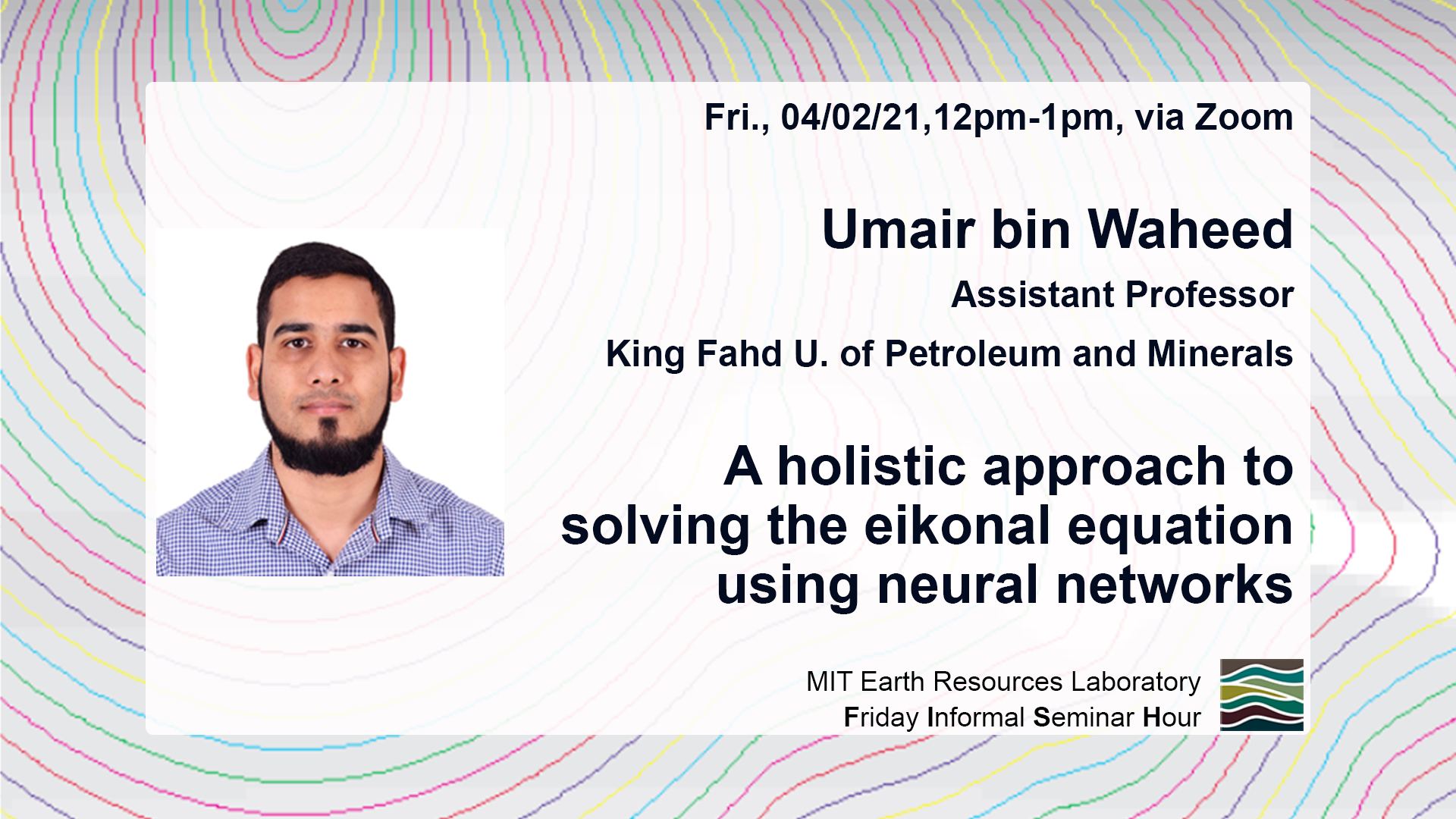Speaker:

MIT Earth Resources Laboratory presents Umair bin Waheed, Assistant Professor at King Fahd University of Petroleum and Minerals, on "A holistic approach to solving the eikonal equation using neural networks."
"Since the original algorithm by John Vidale to numerically solve the eikonal equation in 1988, there has been tremendous progress on the topic addressing an array of challenges including improvement of the solution accuracy, incorporation of surface topography, adding more accurate physics by accounting for anisotropy/attenuation in the medium, and speeding up computations by using multiple CPUs and GPUs. However, a challenge that remains unsolved is that there no transfer of information between one computation and the next, i.e., once a traveltime solution is obtained for a particular source point and velocity model, the same amount of computational effort is needed even for a small perturbation in the source position and/or the velocity model. Therefore, we seek an alternate approach to address the challenge in a more holistic manner, i.e., a method that not only makes it simpler to incorporate topography, allow accounting for more accurate physics, and benefit from computational speedup due to the availability multiple CPUs or GPUs but also able to transfer knowledge gained from solving one problem to the next.
We develop an algorithm based on the emerging paradigm of physics-informed neural network (PINNs) to solve various forms of the eikonal equation. We show how transfer learning and surrogate modeling can be used to speed up computations by utilizing information gained from prior solutions. Additionally, we demonstrate how the proposed approach makes it simpler to incorporate topography, complex physics, and benefiting from the availability of multiple CPUs and GPUs in contrast to conventional methods that took years and often decades to make these advances. Such an approach not only makes the implementation of eikonal solvers much simpler but also puts us on a much faster path to progress.
In addition, we demonstrate the capabilities of PINNs for solving inverse problems and share recent developments on traveltime tomography using PINNs."
Dr. Umair bin Waheed is an Assistant Professor of Geophysics at King Fahd University of Petroleum and Minerals (KFUPM). His research interests are broadly in the area of computational geosciences. Specifically, he is interested in automating and improving workflows through the use of smart algorithms for enhanced decision making in subsurface energy systems. Umair graduated from King Abdullah University of Science and Technology with a Ph.D. in Earth Science & Engineering in 2015. Prior to joining KFUPM in 2017, he was a postdoctoral fellow at the Department of Geosciences, Princeton University and a Writing in Science and Engineering fellow at the Princeton Writing Program.